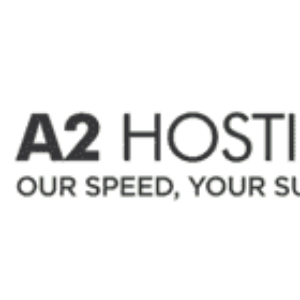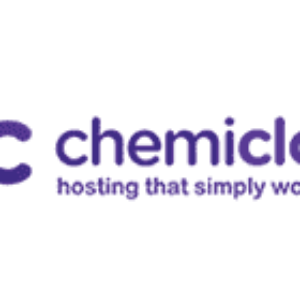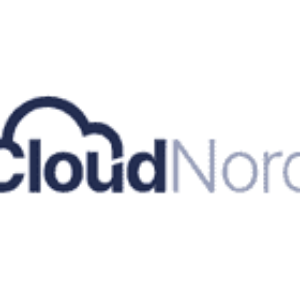Joomla Hosting
Joomla hosting is the backbone of a well-performing website built on Joomla, one of the most powerful and versatile content management systems (CMS) available. If you are considering launching a website, whether for personal blogging, business, or e-commerce, you have likely stumbled upon the name Joomla. The CMS has carved a niche for itself due to its robust architecture, flexibility, and user-friendliness, making it a prime choice for webmasters looking to develop engaging and scalable websites.
However, choosing the best Joomla hosting is just as important as picking the right CMS. Joomla’s unique structure and functionality require hosting that can deliver speed, security, and reliability. In this comprehensive article, we will dive deep into what Joomla hosting entails, the key features you should look for in Joomla hosting, and how it can power up your website for success.
Why Joomla Hosting Matters
Imagine crafting a beautifully designed, fully functional website on Joomla, but the hosting you choose is slow, unresponsive, and prone to frequent crashes. All your hard work goes down the drain because users won’t stay long on a site that takes forever to load or is constantly unavailable. Therefore, understanding the importance of reliable Joomla hosting is critical.
The right Joomla hosting solution provides:
- Speed: Website speed plays a major role in SEO rankings, user experience, and conversion rates. A fast website helps retain visitors and keeps them engaged.
- Security: Joomla sites need robust protection against hacking, malware, and data breaches.
- Uptime: Maximum uptime guarantees your website is always available to visitors.
- Scalability: As your website grows, your hosting must be able to handle the traffic and data load.
Now, let’s break down what Joomla hosting is and explore the critical aspects that make it fast, secure, and reliable.
What is Joomla Hosting?
At its core, Joomla hosting refers to web hosting solutions specifically tailored to optimize the performance of websites built on the Joomla CMS platform. Since Joomla comes with its own set of requirements, such as a MySQL database and PHP scripting, the hosting provider must be equipped to support these elements.
The best Joomla hosting services include enhanced server configurations, security protocols, and Joomla-optimized features to ensure seamless performance. This means that hosting companies offering Joomla hosting provide pre-installed Joomla setups, automated updates, and Joomla-specific support teams to help users manage their websites effectively.
Key Features of Joomla Hosting
When choosing the best Joomla hosting provider, there are a number of key features you should prioritize to ensure a smooth and hassle-free experience. These features include:
1. Server Performance and Speed Optimization
The performance of your server directly impacts your site’s load times and user experience. In Joomla hosting, speed optimization is crucial, as search engines like Google prioritize fast-loading websites for higher search rankings. SSD storage, HTTP/2 support, and optimized caching mechanisms are just a few of the technologies that enhance server performance.
Joomla websites are often dynamic and database-driven, so a hosting provider that offers database optimization tools and server-side caching can dramatically reduce the time it takes to serve pages to visitors.
2. Security Features Tailored for Joomla
Joomla’s flexibility and wide range of extensions can sometimes make it vulnerable to security risks if left unmanaged. That’s why robust security features are critical in Joomla hosting. The best hosting providers offer:
- Firewall protection: Shields your site from common threats like DDoS attacks and SQL injection.
- Regular security patches: Ensures that Joomla’s core and extensions are always up-to-date and secure.
- Automated backups: Provides daily backups so you can quickly restore your website if something goes wrong.
- SSL certificates: Encrypts data transmission, offering visitors peace of mind and improving SEO.
3. Joomla-Specific Support
Having access to a team of Joomla experts who understand the platform’s intricacies can be invaluable. Hosting providers with Joomla-specialized support teams can help troubleshoot issues, guide you through Joomla configurations, and suggest performance improvements.
4. Scalability and Resource Allocation
Your Joomla site might start small, but with the right strategy, it can quickly grow into a large-scale operation. Whether you’re managing a blog, portfolio, or e-commerce store, scalability is a must. Look for Joomla hosting that offers:
- Unlimited bandwidth and storage options
- Resource scaling options that allow you to upgrade as your traffic grows.
- Managed hosting plans that handle server optimizations as your site evolves.
5. One-Click Joomla Installation
Ease of use is another essential aspect of Joomla hosting. Hosting providers that offer a one-click Joomla installation simplify the process of setting up your website. Instead of manually uploading Joomla files and configuring databases, a one-click installation allows you to get your site up and running in just a few minutes.
Types of Joomla Hosting
There are different types of hosting solutions available for Joomla websites, each with its own advantages depending on your site’s needs. These include:
Shared Hosting
Shared hosting is the most affordable option, where multiple websites share the same server resources. It’s ideal for small Joomla websites or blogs that don’t have high traffic demands. While it’s budget-friendly, the downside is that performance may suffer if other websites on the server experience traffic spikes.
VPS Hosting
A Virtual Private Server (VPS) provides a more dedicated environment compared to shared hosting. Although you’re still sharing the physical server with other websites, VPS hosting offers dedicated resources like CPU, RAM, and storage. This is a great middle-ground solution for Joomla websites that need better performance without the cost of a fully dedicated server.
Cloud Hosting
Cloud hosting provides excellent scalability and flexibility. Your Joomla website is hosted on a network of interconnected servers, meaning resources can be allocated dynamically based on your site’s needs. This ensures high availability and uptime since your website isn’t dependent on a single server.
Dedicated Hosting
For large Joomla websites with significant traffic and data requirements, dedicated hosting is the top-tier option. It provides an entire physical server dedicated solely to your website, offering maximum control, security, and performance. While it’s the most expensive option, dedicated hosting is ideal for businesses that rely heavily on their Joomla site for revenue.
Managed Joomla Hosting
In managed Joomla hosting, the hosting provider takes care of all technical aspects like server management, security updates, and performance optimizations. This type of hosting is perfect for website owners who don’t have the time or expertise to manage server configurations and would rather focus on content and business growth.
How to Choose the Best Joomla Hosting Provider
When deciding on the best Joomla hosting provider, consider the following criteria:
1. Uptime Guarantee
An uptime guarantee is critical for any website, especially Joomla-based sites where uptime impacts user experience and SEO. Look for hosting providers that offer at least a 99.9% uptime guarantee.
2. Server Locations
The physical location of your server impacts website speed, especially for global audiences. Choose a provider with multiple server locations or Content Delivery Network (CDN) integration to ensure fast load times across different regions.
3. Customer Support
Joomla hosting requires more than just a basic understanding of web hosting. It involves Joomla-specific configurations, and having access to 24/7 customer support with Joomla expertise can make a huge difference.
4. Pricing and Value for Money
While cost is always a factor, it’s essential to balance price with the features offered. Cheaper isn’t always better, especially if it compromises on performance or security. Look for hosting plans that provide good value for money, including features like free SSL certificates, daily backups, and Joomla-specific optimizations.
Joomla Hosting vs. WordPress Hosting: Key Differences
It’s natural to compare Joomla with its closest competitor, WordPress. While both are powerful CMS platforms, their hosting requirements differ in several key areas.
1. Flexibility vs. Simplicity
Joomla offers more flexibility out of the box with its ability to handle complex site structures and content. However, this flexibility requires a more robust hosting environment compared to WordPress, which tends to be more lightweight.
2. Security Needs
Both Joomla and WordPress require strong security features, but Joomla’s more complex architecture means that security measures like firewalls, anti-malware tools, and SSL certificates are even more critical.
3. Performance Optimization
Joomla’s dynamic content generation and database-heavy architecture make server optimization a must. While WordPress benefits from simpler optimization techniques like caching and Content Delivery Networks (CDNs), Joomla websites require specific configurations that can be managed through Joomla-optimized hosting plans.
Top Joomla Hosting Providers
After an extensive review of the Joomla hosting landscape, we’ve identified some of the top Joomla hosting providers in 2024. These providers stand out for their superior performance, security, and support tailored to Joomla users.
1. SiteGround
SiteGround is a well-known name in Joomla hosting, offering outstanding performance and customer support. With one-click Joomla installation, automated updates, and robust security features, SiteGround is perfect for users looking to scale their Joomla site. They also offer free SSL certificates, daily backups, and enhanced caching mechanisms for faster site performance.
2. A2 Hosting
A2 Hosting is renowned for its fast servers and Joomla-optimized hosting plans. They offer Turbo Servers that provide up to 20x faster performance, making it ideal for users looking to speed up their Joomla websites. With features like SSL certificates, free backups, and advanced security measures, A2 Hosting is an excellent choice for Joomla hosting.
3. InMotion Hosting
InMotion Hosting provides a range of features ideal for Joomla users, including SSD storage, free website migration, and unlimited bandwidth. They also offer 24/7 customer support with Joomla experts on hand to help troubleshoot any issues you might face.
4. Cloudways
For those seeking cloud hosting solutions for Joomla, Cloudways is a great option. It offers scalable hosting with advanced caching mechanisms and auto-healing servers that ensure maximum uptime and performance. Cloudways also integrates well with CDN services for even faster load times.
Best Practices for Optimizing Joomla Hosting
Even with a top-tier Joomla hosting provider, you can further optimize your website for speed, performance, and security. Here are some of the best practices to consider:
1. Enable Caching
Joomla comes with built-in caching options that allow you to cache pages and modules, reducing the load on your server. Enabling caching can significantly improve your website’s performance.
2. Use a CDN
A Content Delivery Network (CDN) distributes your website’s static files (images, CSS, JavaScript) across multiple servers worldwide, ensuring that users load the content from the server closest to their location. This improves both speed and reliability.
3. Minimize Extensions
While Joomla offers a wide range of extensions, it’s essential to only use those that are absolutely necessary. Too many extensions can slow down your website and increase security vulnerabilities.
4. Optimize Images
Large image files can significantly slow down your website’s loading speed. Use image optimization tools or plugins to compress images without sacrificing quality.
5. Regularly Update Joomla Core and Extensions
Keeping Joomla’s core and extensions updated is crucial to maintaining a secure and optimized website. Outdated versions can contain security flaws that hackers exploit, so regular updates are a must.
How to Migrate Your Website to Joomla Hosting
Migrating your website to Joomla hosting can seem daunting, but with the right steps and guidance, the process becomes much smoother. Whether you are moving from another CMS like WordPress or migrating an existing Joomla site to a new hosting provider, here are the steps you should follow:
1. Backup Your Current Website
Before starting any migration process, ensure you have a complete backup of your website. This includes all files, databases, and settings. If you’re moving from Joomla to another host, most hosting providers offer automated backup solutions or migration tools to simplify this process.
2. Choose a New Joomla Hosting Provider
Select a Joomla-optimized hosting provider that fits your site’s needs. Consider factors like server speed, customer support, pricing, and the level of Joomla expertise offered by the hosting provider.
3. Set Up the New Hosting Environment
Once you’ve chosen your new Joomla hosting provider, set up the new hosting environment. Most hosts provide one-click Joomla installation or manual setup options for those familiar with hosting environments. Ensure that the server meets the minimum Joomla requirements, including PHP, MySQL, and Apache/Nginx configurations.
4. Export Your Database and Files
For migrating your Joomla website, the next step is to export your Joomla database and all associated files. Joomla uses a MySQL database to store content, user data, and settings. You can export the database using tools like phpMyAdmin or command-line tools.
Additionally, ensure you export all website files, including themes, plugins, and media content. Use FTP or cPanel’s file manager for this step.
5. Import to the New Joomla Hosting Provider
After exporting your website files and database, you’ll need to import them to your new Joomla hosting provider. If your host provides migration tools, the process may be as simple as uploading the backup file and letting the hosting provider handle the rest.
If you’re migrating manually, use phpMyAdmin to import your database and FTP to upload the website files. Once everything is uploaded, configure the Joomla configuration.php file to connect to the new database and hosting environment.
6. Test Your Website
After the migration process, it’s crucial to test your website thoroughly. Make sure all your pages load correctly, the database is connected, and there are no errors. Verify that any third-party Joomla extensions or plugins function as expected. It’s also a good idea to test website speed and security on the new hosting environment to ensure everything is optimized.
7. Update DNS Settings
Once you’re satisfied that the migration was successful, update your DNS settings to point to the new hosting provider. This process can take anywhere from a few hours to 48 hours to propagate globally.
8. Monitor for Errors and Optimize Performance
After your website is live on the new Joomla hosting provider, continuously monitor it for errors or performance issues. Many hosting providers offer monitoring tools to help you stay on top of server performance and potential security threats.
How Joomla Hosting Improves SEO
One of the most significant advantages of using Joomla hosting is its potential to boost your SEO. With the right hosting provider and proper optimization, Joomla websites can rank higher on search engine results pages (SERPs). Here’s how Joomla hosting contributes to better SEO:
1. Improved Website Speed
Search engines, especially Google, prioritize fast-loading websites. With Joomla hosting, providers offer server-level caching, CDN integration, and SSD storage, which significantly improve your website’s load times. Faster websites not only offer a better user experience but also rank higher on Google.
2. Optimized Server Configuration
Joomla hosting providers typically fine-tune their servers specifically for Joomla websites. This includes optimizing PHP versions, server caching mechanisms, and database performance, all of which contribute to a faster and more SEO-friendly website.
3. Secure Hosting
Security is also a ranking factor for search engines. Joomla hosting providers prioritize security by offering features like SSL certificates, firewalls, and malware scanning. Websites with an SSL certificate (HTTPS) rank higher than those without, as they provide a secure browsing experience for users.
4. Uptime and Reliability
Search engines devalue websites that experience frequent downtime. With Joomla hosting’s high uptime guarantees, your site remains accessible to users and search engine crawlers, ensuring that it consistently performs well in the rankings.
5. Mobile Optimization
Mobile optimization is crucial for modern SEO success. Many Joomla hosting providers offer mobile optimization tools, ensuring that your site performs well on mobile devices. Given that mobile-first indexing is a priority for Google, this is a huge advantage.
The Future of Joomla Hosting: Trends to Watch
As technology evolves, so does Joomla hosting. To stay ahead of the curve, it’s essential to keep an eye on emerging trends in the Joomla hosting landscape. Below are some key trends shaping the future of Joomla hosting:
1. Green Hosting Solutions
With the growing emphasis on sustainability, many Joomla hosting providers are shifting towards green hosting solutions. These providers use energy-efficient servers, rely on renewable energy sources, and adopt eco-friendly practices to reduce their carbon footprint. This trend is not only beneficial for the environment but also appeals to businesses and users who prioritize sustainability.
2. AI-Powered Hosting Optimization
Artificial intelligence (AI) is making its way into the hosting industry, and Joomla hosting is no exception. AI-powered optimization tools can help automatically optimize server configurations, monitor website traffic patterns, and provide real-time insights to improve performance. This reduces the need for manual intervention and allows webmasters to focus more on content creation and growth.
3. Enhanced Cybersecurity Measures
As cyber threats become more sophisticated, Joomla hosting providers are expected to implement even more advanced security protocols. This includes AI-driven threat detection systems, advanced encryption methods, and enhanced multi-factor authentication (MFA) systems to safeguard websites against data breaches and hacking attempts.
4. Cloud-Native Joomla Hosting
With the growing adoption of cloud technologies, cloud-native hosting is becoming more prevalent in Joomla hosting. Cloud-native hosting offers greater scalability, resilience, and performance by distributing resources across multiple servers. This also enables auto-scaling, where server resources automatically adjust based on your website’s needs, ensuring optimal performance at all times.
Common Mistakes to Avoid in Joomla Hosting
While Joomla hosting can offer a wide range of benefits, there are also common pitfalls that many users encounter. By avoiding these mistakes, you can ensure your Joomla website runs smoothly and efficiently.
1. Choosing Price Over Quality
Many users make the mistake of selecting a Joomla hosting provider solely based on price. While cost is a factor, opting for the cheapest option can result in poor performance, limited features, and lack of support. It’s essential to consider factors like uptime, security, and customer support in addition to price.
2. Neglecting Backups
Failing to regularly back up your Joomla website can lead to data loss in the event of a server crash, hack, or accidental deletion. Make sure to choose a Joomla hosting provider that offers automated backups or implement your own backup strategy.
3. Ignoring Server Location
The location of your hosting server can affect website speed, particularly for visitors in different regions. Always choose a hosting provider with server locations close to your target audience or invest in a Content Delivery Network (CDN) to ensure fast load times for users across the globe.
4. Overloading with Extensions
Joomla offers a wide variety of extensions, but installing too many can slow down your website and increase the risk of security vulnerabilities. Be selective about the extensions you install, and always ensure they are up-to-date and secure.
5. Skimping on Security Features
Security should never be an afterthought. Failing to implement SSL certificates, firewalls, or malware scanners can leave your Joomla website vulnerable to attacks. Choose a Joomla hosting provider that prioritizes security and offers robust protection for your website.
Conclusion: Choosing the Right Joomla Hosting for Your Needs
In the end, Joomla hosting is about more than just providing a server to host your website—it’s about creating an optimized environment where your Joomla site can thrive. Whether you’re building a personal blog, a business website, or a complex e-commerce platform, the right Joomla hosting can make all the difference in terms of performance, security, and user experience.
By considering factors like speed, security, support, and scalability, you can choose the best Joomla hosting provider to meet your unique needs. Don’t settle for just any hosting—opt for Joomla hosting that provides the perfect balance of performance, reliability, and affordability.
FAQ Section
1. What is Joomla hosting?
Joomla hosting refers to web hosting services that are optimized for Joomla CMS. These services offer specific features like pre-installed Joomla, optimized server configurations, and enhanced security protocols tailored for Joomla websites.
2. Why should I choose Joomla hosting over regular hosting?
Joomla hosting is optimized for the Joomla platform, offering better performance, security, and specialized support compared to regular hosting services. Regular hosting may not meet the specific requirements needed to run Joomla websites effectively.
3. Can I switch to Joomla hosting from another CMS?
Yes, migrating from another CMS like WordPress to Joomla is possible, but it requires careful planning. You will need to migrate your content, design, and database, ensuring compatibility with the Joomla framework.
4. What are the different types of Joomla hosting?
Joomla hosting options include shared hosting, VPS hosting, cloud hosting, dedicated hosting, and managed Joomla hosting. Each type offers different levels of resources, control, and scalability based on your website’s needs.
5. Is Joomla hosting secure?
Joomla hosting providers offer various security features like SSL certificates, firewalls, malware scanning, and automated backups to ensure the security of Joomla websites.
6. How can Joomla hosting improve my website’s SEO?
Joomla hosting enhances your website’s SEO by offering optimized server performance, faster loading times, SSL encryption for secure browsing, and better uptime, all of which contribute to improved rankings on search engines.
7. What are the common pitfalls to avoid when choosing Joomla hosting?
Common mistakes include selecting hosting based solely on price, neglecting to back up your website, ignoring server location, overloading your site with extensions, and skimping on security features.
8. Can I scale my website with Joomla hosting?
Yes, many Joomla hosting providers offer scalable solutions that allow you to upgrade your resources as your website grows, including additional storage, bandwidth, and server capabilities.
9. What is managed Joomla hosting?
Managed Joomla hosting is a type of hosting where the provider takes care of all the technical aspects, such as server management, updates, and security, allowing you to focus on content and business growth.
10. How do I choose the best Joomla hosting provider?
When choosing a Joomla hosting provider, consider factors like uptime guarantees, server locations, customer support, security features, and pricing to ensure you get the best value and performance for your Joomla site.
Showing 1–12 of 22 results












